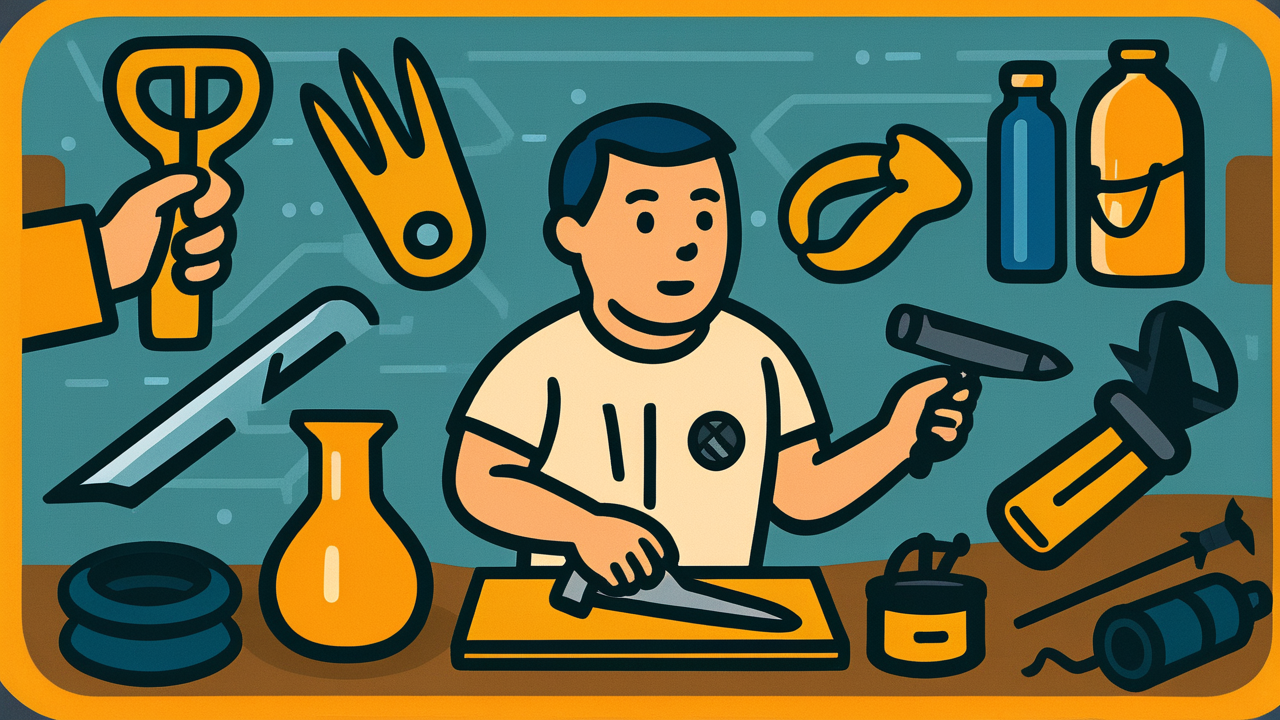How to Read “必要は発明の母”
Hitsuyou wa hatsumei no haha
Meaning of “必要は発明の母”
This proverb means that when humans are placed in situations where they need something, that necessity becomes the driving force that generates new ideas and solutions.
In other words, it expresses that experiencing difficult situations or inconveniences becomes the most powerful motivation for promoting creativity and invention. The expression “mother” positions necessity as the source that gives birth to and nurtures invention.
This proverb is used when talking about problem-solving or new inventions. For example, it’s used when someone who felt inconvenience creates a groundbreaking tool, or when new ideas are born from difficult situations. Even today, it’s often quoted when discussing inventions born from everyday “necessities,” such as smartphone app development or improvements to daily goods. The reason for using this expression is to explain the fundamental motivation behind invention and creation, and to find positive meaning even in difficult situations.
Origin and Etymology
“Necessity is invention’s mother” is actually a proverb of Western origin. The English phrase “Necessity is the mother of invention” came to Japan and became established there.
The origin of this expression is ancient, said to trace back to the ancient Greek philosopher Plato’s work “The Republic.” Plato showed the idea that “necessity is what gives birth to invention.” This thought was subsequently passed down in Western culture for a long time and expressed in various forms.
In English-speaking countries, it began to be used in its current form around the 17th century, and became particularly frequently quoted during the Industrial Revolution era. The historical background of remarkable development in machinery and technology likely supported the spread of this proverb.
Its introduction to Japan is thought to have occurred during the Meiji period. During an era when Western technology and thought were being actively adopted, this proverb was also translated and became established in Japanese. The fact that the expression “mother” was familiar to Japanese sensibilities might be one reason it was widely accepted. What’s interesting is that when translated into Japanese, the original meaning was preserved almost exactly.
Usage Examples
- The power outage continued, and as they say, necessity is invention’s mother – I ended up making a hand-crank generator myself
- When remote work began, necessity is invention’s mother, and I created a proper desk using only materials I had at home
Modern Interpretation
In modern society, this proverb shines with new brilliance. Particularly with the arrival of the digital age, its meaning has become more familiar and tangible.
Look at smartphone app development. Apps born from small daily inconveniences have now become indispensable to our lives. Ride-hailing apps were born from the necessity of “calling a taxi is troublesome,” and food delivery apps from the necessity of “wanting to eat without going out.” These can truly be called modern versions of “Necessity is invention’s mother.”
During the COVID pandemic, the true value of this proverb was further demonstrated. The necessity of remote work led to rapid adoption of video conferencing systems, and new forms of entertainment and learning methods were born one after another amid movement restrictions. Mask shortages led to a boom in handmade masks, showcasing people’s creativity and ingenuity.
On the other hand, the definition of “necessity” has also changed in modern times. In the past, basic needs related to survival were central, but now convenience, efficiency, and even spiritual enrichment are recognized as “necessities.” This change has greatly expanded the scope of invention, creating fertile ground for more diverse and creative ideas to emerge.
When AI Hears This
The saying “necessity is the mother of invention” assumes a clear understanding of whose necessity we’re talking about, but in modern society, this has become ambiguous. The “necessity” this proverb originally envisioned referred to pressing problems faced by individuals or communities. However, many of today’s inventions don’t spring from personal needs, but rather from corporate sales targets and investor return expectations.
Consider the evolution of smartphone features. Users weren’t desperately crying out for “thinner devices” or “higher resolution cameras.” Instead, manufacturers develop new features to maintain annual sales figures, then use marketing to convince consumers “you need this.” We’re witnessing a reversal phenomenon where “invention creates necessity.”
This disconnect delays solutions to real social problems. In areas with thin profit margins for companies—such as treatments for rare diseases or affordable technology for developing countries—inventions rarely emerge despite urgent needs from patients and residents. Meanwhile, profitable sectors see excessive innovation.
Modern invention systems have shifted the subject of “necessity” from individuals to corporations. To generate inventions that truly advance society, we need mechanisms that once again listen to the pressing needs of individuals and communities.
Lessons for Today
What this proverb teaches us today is the importance of viewing difficulties and inconveniences not as things to lament, but as opportunities for creation.
The moments in daily life when you feel “this is troublesome” or “this is inconvenient” are actually seeds of new ideas. By not overlooking those small dissatisfactions and developing the habit of thinking “how can this be solved,” your creativity will improve dramatically.
In modern society, many problems appear to have already been solved, but there’s still plenty of room for improvement. New era “necessities” are constantly emerging – aging society, environmental problems, diversification of work styles. When facing these challenges, remember this proverb.
What’s important is not trying to find perfect solutions all at once. Start with small improvements and gradually build upon them. That process itself will enrich your life. When you feel necessity, it’s a sign of growth. Cherish that feeling and try starting new challenges.



Comments